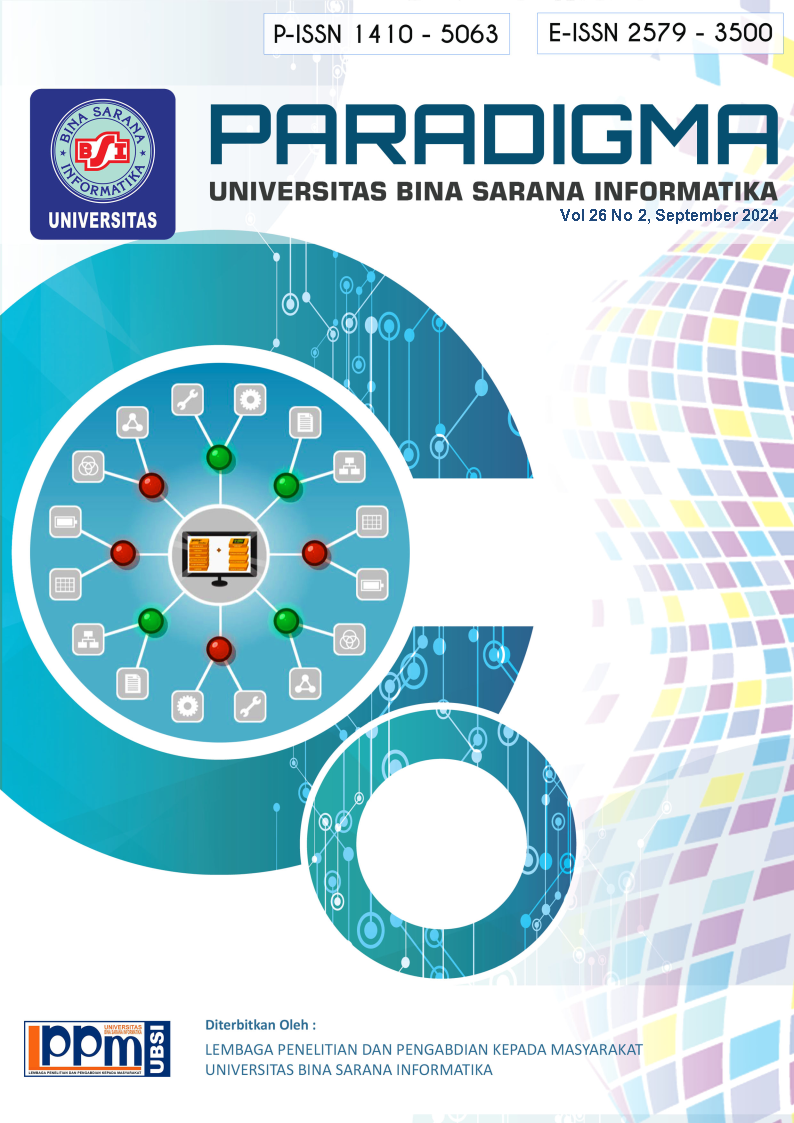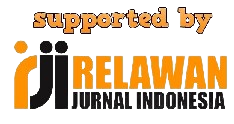Sipkumhamai Application Success Analysis Using the Delone And Mclean Model
DOI:
https://doi.org/10.31294/p.v26i2.4608Keywords:
Legal and Human Rights Policies, Evidence-Based Policies, Sipkumhamai, System Evaluation, Delone and McleanAbstract
Evidence-based policy aims to increase the efficiency and effectiveness of policy settings and increase alternative opportunities. The Legal and Human Rights Policy Strategy Agency created the SIPKUMHAMAI application to support evidence-based legal and human rights policies, support legal and human rights research with better data, and provide information to the public about legal and human rights issues. It is very important to make efforts to provide comprehensive and systematic data and information on legal and human rights issues originating from real situations on the ground. In addition to overall legal and human rights issues, this data and information can be used to find out more about the causes of legal and human rights problems, identify deficiencies in law enforcement and human rights protection, and carry out analyzes and provide various recommendations to strengthen systems and mechanisms for enforcing law and human rights in Indonesia. To achieve this goal, a system evaluation must be carried out to determine which components need to be improved. This is necessary to determine whether the system used provides significant benefits for users and the organization. Using the Delone and McLean model, from the six relationships of Information System Success Model, it was obtained that only Hypothesis 7, Hypothesis 8, and Hypothesis 9 were significantly supported and accepted by the data. These findings provide several implications for eGovernment research and practice, especially regarding how to maximize applications. This paper concludes by discussing the limitations that the proposed hypotheses are not fully supported by the research results.
References
Amriani, T. N., & Iskandar, A. (2019). Analisis Kesuksesan Implementasi Sistem Aplikasi Keuangan Tingkat Instansi (SAKTI) pada Satuan Kerja di Lingkungan Badan Pendidikan dan Pelatihan Keuangan (BPPK). Kajian Ekonomi Dan Keuangan, 3(1), 54–74. https://doi.org/10.31685/kek.v3i1.409
Andriyani, N., Hamzah, R., & Siagian, R. (2020). Pengaruh Lingkungan Kerja Dan Disiplin Kerja Terhadap Kinerja Karyawan Dan Motivasi Kerja Sebagai Variabel Intervening Pada Pt Aquavue Vision International. Jurnal Ekonomi Bisnis Indonesia (JEBI), 15(1), 24–32. www.jurnal.stiebi.ac.id
Andriyanto, D., Said, F., Titiani, F., & Erni, E. (2021). Analisis Kesuksesan Aplikasi Jakarta Kini (JAKI) Menggunakan Model Delone and McLean. Paradigma - Jurnal Komputer Dan Informatika, 23(1). https://doi.org/10.31294/p.v23i1.10018
Aziz, F., Irmawati, Riana, D., Mulyanto, J. D., Nurrahman, D., & Tabrani, M. (2020). Usability Evaluation of the Website Services Using the WEBUSE Method (A Case Study: Covid19.go.id). Journal of Physics: Conference Series, 1641(1). https://doi.org/10.1088/1742-6596/1641/1/012103
Chandra, F. S., & Novita, D. (2020). Analisis Penerimaan Masyarakat Terhadap Layanan Transportasi Online Menggunakan UTAUT (Unified Theory of Acceptance and Use of Technology). Jurnal Teknologi Sistem Informasi (JTSI), 1(1), 23–33.
Cheung, G. W., Cooper-Thomas, H. D., Lau, R. S., & Wang, L. C. (2024). Reporting reliability, convergent and discriminant validity with structural equation modeling: A review and best-practice recommendations. In Asia Pacific Journal of Management (Vol. 41, Issue 2). Springer US. https://doi.org/10.1007/s10490-023-09871-y
Dias, S. B., Oikonomidis, Y., Diniz, J. A., Baptista, F., Carnide, F., Bensenousi, A., Botana, J. M., Tsatsou, D., Stefanidis, K., Gymnopoulos, L., Dimitropoulos, K., Daras, P., Argiriou, A., Rouskas, K., Wilson-Barnes, S., Hart, K., Merry, N., Russell, D., Konstantinova, J., … Hadjileontiadis, L. J. (2022). Users’ Perspective on the AI-Based Smartphone PROTEIN App for Personalized Nutrition and Healthy Living: A Modified Technology Acceptance Model (mTAM) Approach. Frontiers in Nutrition, 9(July), 1–18. https://doi.org/10.3389/fnut.2022.898031
Fahirah, Arnesia, P. D., & Puteri, S. L. E. (2020). Analisis Google Classroom Sebagai Sistem Pembelajaran Jarak Jauh Saat Pandemi Covid-19 Menggunakan Model Kesuksesan Sistem Informasi. Seminar Nasional Teknologi Informasi Dan Komunikasi STI&K (SeNTIK), 4(1), 57–64
Firdaus, A. (2022). Good Governance Melalui Kebijakan Berbasis Bukti Reformulasi Sistem Peradilan Pidana Nasional. 9(1), 27–36
Kraus, K., Kraus, N., Hryhorkiv, M., Kuzmuk, I., & Shtepa, O. (2022). Artificial Intelligence in Established of Industry 4.0. WSEAS Transactions on Business and Economics, 19, 1884–1900. https://doi.org/10.37394/23207.2022.19.170
Kurniawan, I. M. W. S., Dantes, G. R., & Indrawan, G. (2020). Analisis Kesuksesan Implementasi Aplikasi Online Single Submission Menggunakan Metode Delone Dan Mclean. Jurnal Nasional Pendidikan Teknik Informatika: JANAPATI, 9(3), 326–337
Kusmaryono, I., Wijayanti, D., & Maharani, H. R. (2022). Number of Response Options, Reliability, Validity, and Potential Bias in the Use of the Likert Scale Education and Social Science Research: A Literature Review. International Journal of Educational Methodology, 8(4), 625–637. https://doi.org/10.12973/ijem.8.4.625
Pramudito, D. K., Arijanti, S., Yanto RUkmana, A., Oetomo, D. S., & Kraugusteeliana, K. (2023). The Implementation of End User Computing Satisfaction and Delone & Mclean Model to Analyze User Satisfaction of M.TIX Application. Jurnal Informasi Dan Teknologi, 5(3), 7–12. https://doi.org/10.60083/jidt.v5i3.383
Pranatawijaya, V. H., Widiatry, W., Priskila, R., & Putra, P. B. A. A. (2019). Penerapan Skala Likert dan Skala Dikotomi Pada Kuesioner Online. Jurnal Sains Dan Informatika, 5(2), 128–137. https://doi.org/10.34128/jsi.v5i2.185
Rian Marliana, R. (2020). Partial Least Squares-Structural Equation Modeling Pada Hubungan Antara Tingkat Kepuasan Mahasiswa Dan Kualitas Google Classroom Berdasarkan Metode Webqual 4.0. 16(2), 174–186. https://doi.org/10.20956/jmsk.v%vi%i.7851
Shim, M., & Jo, H. S. (2020). What quality factors matter in enhancing the perceived benefits of online health information sites? Application of the updated DeLone and McLean Information Systems Success Model. International Journal of Medical Informatics, 137. https://doi.org/10.1016/j.ijmedinf.2020.104093
Siagian, M., Kurniawan, P. H., & Hikmah. (2019). Analisis Faktor Eksternal dan Internal Terhadap Kinerja UMKM di Kota Batam. Jurnal Ekonomi & Ekonomi Syariah, 2(2), 265–271
Surden, H. (2019). Artificial Intelligence and Law: An Overview. Georgia State University Law Review, 35(4), 1306–1337. https://ssrn.com/abstract=3411869
Thung, F. (2019). Pengaruh Kualitas Pelayanan Mitra Go-Jek Terhadap Loyalitas Pelanggan Dengan Kepuasan Pelanggan Sebagai Variabel Mediasi. Jurnal Bina Manajemen, 8(1), 74–95
Wara, L. S., Kalangi, L., & Gamaliel, H. (2021). Pengujian Model Kesuksesan Sistem Informasi Delone Dan Mclean Pada Sistem Aplikasi Pemeriksaan (Siap) Di Badan Pemeriksa Keuangan Republik Indonesia Perwakilan Provinsi Sulawesi Utara. Jurnal Riset Akuntansi Dan Auditing “Goodwill,” 12(1), 1–15
Downloads
Published
How to Cite
Issue
Section
License
Copyright (c) 2024 Fadillah Said, Chintia Octenta, Adi Octaviantara

This work is licensed under a Creative Commons Attribution-ShareAlike 4.0 International License.
Paradigma is an open-access article distributed under the terms of the Creative Commons Attribution-ShareAlike 4.0 International License (https://creativecommons.org/licenses/by-sa/4.0/) , This license permits: Share — copy and redistribute the material in any medium or format for any purpose, even commercially, Adapt — remix, transform, and build upon the material for any purpose, even commercially.




















 Jl. Kramat Raya No.98, Kwitang, Kec. Senen, Kota Jakarta Pusat, DKI Jakarta 10450
Jl. Kramat Raya No.98, Kwitang, Kec. Senen, Kota Jakarta Pusat, DKI Jakarta 10450
